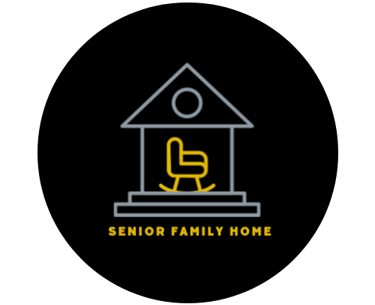Creating a Smooth Transition: Tips for Moving to a Residential Care Facility




Preparing Emotionally:
Moving to a residential care facility can evoke a mix of emotions for both seniors and their families. Seniors may experience feelings of uncertainty, loss, or even excitement about the new chapter in their lives. It is essential to acknowledge these emotions and have open and honest conversations about the transition. Provide emotional support and reassurance, emphasizing the positive aspects of the move, such as access to new activities and a supportive community. Encourage seniors to express their feelings and concerns, and listen attentively to their thoughts. Engaging in these conversations can help alleviate anxieties and make the transition more manageable.
Downsizing and Organizing:
Downsizing is often a necessary step when moving to a residential care facility with smaller living spaces. Help seniors sort through their belongings, and allow them to keep cherished items that hold sentimental value. Encourage them to donate or pass on possessions that they no longer need or have space for. Organize the packing process by creating a checklist and timeline, making the move less overwhelming. Label boxes clearly to ensure easy access to essential items upon arrival at the new living space.
Creating a Personalized Space:
One of the key ways to make seniors feel more at home in their new living environment is by personalizing their space. Encourage seniors to bring items from their previous home, such as photographs, artwork, and familiar pieces of furniture. Creating a comforting and familiar environment can provide a sense of continuity and reduce feelings of displacement. Work together to arrange the room in a way that suits their preferences and needs, making it a space they can call their own.
Building Connections:
Loneliness and feelings of isolation can be common concerns when transitioning to a residential care facility. Encourage seniors to participate in activities and social events within the community. Engaging in group activities, outings, or hobbies can help seniors build connections with fellow residents and staff members. These new friendships can provide a sense of belonging and mutual support, making the transition more enjoyable and fulfilling.


Staying Involved:
Moving to a residential care facility doesn't mean families should become less involved in their senior loved one's life. Regular visits, phone calls, and involvement in their daily activities can provide ongoing reassurance and demonstrate continued care and love. Engaging in meaningful conversations and participating in activities together can strengthen the bond between seniors and their families.


Communicating with Caregivers:
Establishing open communication with the caregivers and staff members at the residential care facility is crucial for ensuring personalized care and support. Regularly check-in with the staff to discuss any specific needs, preferences, or concerns. Share insights about the senior's personality, interests, and preferences, helping caregivers understand and provide the best care possible. Effective communication helps build a collaborative and caring environment, fostering a positive experience for seniors in their new home.
The transition to a residential care facility is a significant life event that requires thoughtful planning and support from both seniors and their families. By preparing emotionally, downsizing and organizing thoughtfully, creating a personalized space, building connections, staying involved, and communicating effectively with caregivers, families can ensure a smooth and positive transition for their senior loved ones. At Senior Family Home, we value the well-being and happiness of our residents, and our commitment to providing compassionate care and a nurturing environment ensures that each resident feels at home and cherished in our residential care facility.
After understanding the different levels of care in senior living and exploring the options available, the next step is to prepare for a smooth transition to a residential care facility. Moving to a new environment can be a significant change for seniors and their families, and it is essential to approach this transition with care and consideration. In this blog post, we will provide valuable tips and guidance on how to make the moving process as seamless and positive as possible, ensuring that seniors feel at home and supported in their new living arrangement.


